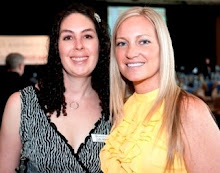Bikur Cholim para-chaplains provide spiritual support and a Jewish connection through holiday services and regular visits to isolated members of the Jewish community, such as residents in nursing homes, assisted living facilities, prisons, and hospitals.
In order to be a para-chaplain, volunteers must be Jewish, but do not need an extensive Jewish education. If you wish to lead services, you will need a more extensive Jewish background, but there are other rewarding options available such as being a visitor in a nursing home, assisted living facility, or private home.
You may still be wondering if this volunteer opportunity is for you. To help answer this question, we asked some of our current para-chaplains to share their stories and experiences. We hope you enjoy the following excerpts:
"I've often wondered about the statement that I heard in para-chaplain training and at other times that 'I get more out of doing this than the clients I serve.' But after doing this for several years, I understand it, because it's true. It's very rewarding work. People really appreciate what you do for them and I'm always learning something new and interesting."
-Jay Miller
“I just love veterans, especially the Jewish veteran I visit at the State Veteran’s Nursing Home! He and I celebrate Shabbat together every Friday, which is a gift to me to meet with him. We sing loudly and others just look at us wondering what we are singing as we light electric Shabbat candles, drink grape juice, and eat challah together. I bring one of my dogs along each week. Just to see his face light up when he sees me with the dog is such a joy to my heart! My visits remind me to cherish the simple moments; they are indeed the most humbling and the most treasured. I adore being a para-chaplain with Jewish Family Service. These, too, are the special moments in my life.”
-Anshel Bomberger
“I am assigned to visit a gentleman at a nursing home who is 99. One day, I went to visit him and he said ‘I am so glad that you called and came to see me, I was hoping that you would.’ Before that I really didn’t know how he felt about my visits. On another recent visit, he had this huge chocolate bar and he said that he remembered that I like chocolate (his mind is really sharp - it amazes me) and he was waiting to share it with me! He does talk a lot about being ready to die and I assure him that he is entitled to those feelings, and that it’s okay for him to tell me about it. To me it is so rewarding that I can fill the extraordinary need to be the person with whom he can share these feelings!”
- Barbara Goldstein
If this volunteer opportunity appeals to you, we urge you to sign up for the 2010 para-chaplain training on April 14, 21, 29, and May 6, 5:30-8:30 p.m. at JFS, 3201 S. Tamarac Dr. Training is provided by Donna Lutz, Nursing Home Outreach coordinator; Rabbi Eliot Baskin, JFS community chaplain; Nancy Benyamin, JFS director of volunteer services; and expert guest speakers.
For more information or to sign up for the training, please contact Nancy Benyamin at (303) 597.5000 x369.
If being a para-chaplain doesn’t suit you, check out the host of other exciting and rewarding volunteer opportunities at JFS!









